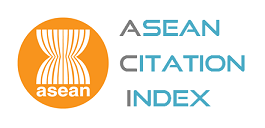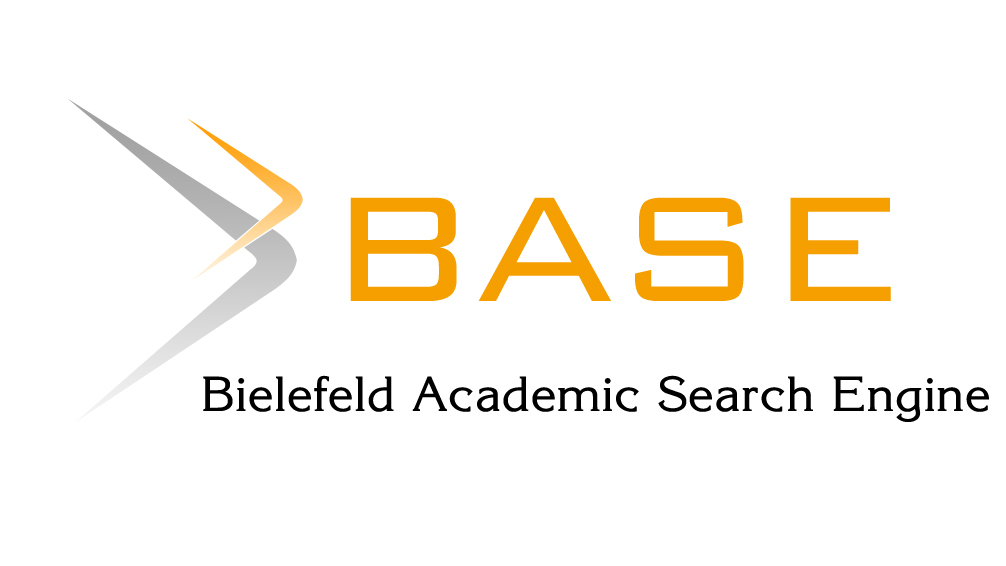INFLUENTIAL FACTORS ON VIETNAMESE NON-ENGLISH MAJORED STUDENTS’ AUTONOMY IN ENGLISH LANGUAGE LEARNING: A CASE STUDY AT TRA VINH UNIVERSITY, VIETNAM
Abstract
Learner autonomy plays a crucial role in language acquisition, particularly in English as a foreign language contexts. This mixed-methods study aims to investigate the internal and external factors influencing English language learning autonomy among non-English majors at a university in the Mekong Delta, Vietnam. Ninety second-year students from diverse fields participated in a structured questionnaire, while five students were further engaged in semistructured interviews. Results reveal that high motivation and effective self-regulated learning strategies positively demonstrate greater learner autonomy, while low self-confidence in real-life English communication remains a challenge for students to increase their autonomy as internal factors. Additionally, the study highlights the crucial role of a supportive educational environment, teacher support, and technological access as external factors in fostering learner autonomy. Based on these findings, the research proposes recommendations for enhancing learner autonomy in English language learning by leveraging these identified factors.
Downloads
References
learning. Language Teaching. 2007;40(1): 21–40.
https://doi.org/10.1017/s0261444806003958.
[2] Yan L, Liu C. A university based case study: The
research on the overall situation and influencing factors of non-English major postgraduates’ learning engagement. Scientific and Social Research. 2022;4(1):
33–39. https://doi.org/10.36922/ssr.v4i1.1312.
[3] Duong My Tham, Nguyen Tuong Vy. The
students’ readiness for learner autonomy in
English language learning. VNU Journal of
Science Education Research. 2023;39(4): 70–77.
https://doi.org/10.25073/2588-1159/vnuer.4727.
[4] Wiranti S, Widiyati E. Exploring the factors
and levels of students’ autonomy in language
learning. International Journal of Indonesian
Education and Teaching. 2022;7(1): 8–21.
https://doi.org/10.24071/ijiet.v7i1.5139.
[5] Karatas H, Alci B, Yurtseven N, Yuksel H. ¨
Prediction of ELT students’ academic (language)
achievement: language learning orientation and
autonomous learning. International Online Journal of Educational Sciences. 2015;7(1): 160–171.
https://doi.org/10.15345/iojes.2015.01.014.
[6] Borg S, Al-Busaidi S. Learner autonomy: English
language teachers’ beliefs and practices. Research
paper. London: University of Leeds; 2012.
[7] Melani M. The effect of Google Classroom assisted
extensive listening on listening comprehension across
learning autonomy. Lingua Cultura. 2020;14(1): 129–
142. https://doi.org/10.21512/lc.v14i1.6493.
[8] Davies H. Pursuing autonomy through dialogue.
LLT Journal: A Journal on Language and
Language Teaching. 2016;19(02): 89–95.
https://doi.org/10.24071/llt.2016.190203.
[9] Xu L. A study on college English teachers’ role
in developing learner autonomy. Theory and Practice in Language Studies. 2015;5(2): 435–441.
https://doi.org/10.17507/tpls.0502.27.
[10] Mohamadpour P. Realization of autonomy and
English language proficiency among Iranian
high school students. Theory and Practice
in Language Studies. 2023;3(7): 1187–1193.
https://doi.org/10.4304/tpls.3.7.1187-1193.
[11] Ghorbandordinejad F, Ahmadabad R. Examination
of the relationship between autonomy and English
achievement as mediated by foreign language classroom anxiety. Journal of Psycholinguistic Research.
2015;45(3): 739–752. https://doi.org/10.1007/s10936-
015-9371-5.
[12] Hussein S, Bajalani F. The role of motivation in
developing autonomy among university EFL students
in the Kurdistan region of Iraq: students’ attitudes.
Journal of Garmian University. 2019;6(1): 517–533.
https://doi.org/10.24271/garmian.1030.
[13] Wang W, Zhan J. The relationship between English language learner characteristics and online self-regulation: a structural equation modeling approach. Sustainability. 2020;12(7): 1–25.
https://doi.org/10.3390/su12073009.
[14] Duong Minh Tuan. Learner autonomy in English language learning: Vietnamese EFL learners’ perceptions and practices. Indonesian Journal of Applied Linguistics. 2021;11(2): 307–317.
https://doi.org/10.17509/ijal.v11i2.29605.
[15] Gholami H. Self assessment and learner autonomy.
Theory and Practice in Language Studies. 2016;6(1):
46–51. http://dx.doi.org/10.17507/tpls.0601.06.
[16] Aghayani B. Learner autonomy and internal
locus of control: Influential factors in EFL
context. ELS Journal on Interdisciplinary
Studies in Humanities. 2021;4(2): 248–252.
https://doi.org/10.34050/elsjish.v4i2.13743.
[17] Lee J, Hein, M. English language learning strategies
reported by advanced language learners. Journal of
International Education Research (JIER). 2016;12(2):
67–76. https://doi.org/10.19030/jier.v12i2.9629.
[18] Orawiwatnakul W, Wichadee S. An investigation
of undergraduate students’ beliefs about
autonomous language learning. International
Journal of Instruction. 2017;10(1): 117–132.
https://doi.org/10.12973/iji.2017.1018a.
[19] Saeed M. Learner autonomy: learners’ perceptions on strategies to achieve autonomy in an
EFL classroom. International Journal of Linguistics Literature and Translation. 2021;4(3): 150–158.
https://doi.org/10.32996/ijllt.2021.4.3.17.
[20] Ghaffari S, Fatemi M. The effects of using instructional conversation method on oral autonomy
of Iranian intermediate EFL learners. Theory and
Practice in Language Studies. 2016;6(6): 1191–1199.
https://doi.org/10.17507/tpls.0606.08.
[21] Greene BA, Miller RB, Crowson HM, Duke BL,
Akey KL. Predicting high school students’ cognitive engagement and achievement: Contributions of
classroom perceptions and motivation. Contemporary
Educational Psychology. 2004;29(4): 462–82.
[22] Sprenger TM, Guerra RR. Promoting the development of learner autonomy and FL oral production through peer collaboration. Studies in
Self-Access Learning Journal. 2018;9: 371–386.
https://doi.org/10.37237/090308.
[23] Keumala M, Samad N, Samad I, Rachmawaty
N. The influence of socio cultural and educational background on EFL learners’ motivation. Indonesian TESOL Journal. 2019;1(1): 67–77.
https://doi.org/10.24256/itj.v1i1.556.
[24] Borg S, Alshumaimeri Y. Language learner autonomy in a tertiary context: teachers’ beliefs and practices. Language Teaching Research. 2017;23(1): 9–
38. https://doi.org/10.1177/1362168817725759.
[25] Ho Bich Nhu, Dang Tan Tin, Nguyen Trung Cang.
Parents’ contributions to Vietnamese English as a
foreign language students’ perceptions of learner autonomy. International Journal of Learning Teaching and Educational Research. 2023;22(2): 54–75.
https://doi.org/10.26803/ijlter.22.2.4.
[26] Melvina M. Learner autonomy and English proficiency of Indonesian undergraduate students. Cypriot
Journal of Educational Sciences. 2021;16(2): 803–
818. https://doi.org/10.18844/cjes.v16i2.5677.
[27] Tran Quoc Thao, Duong My Tham. EFL
learners’ perceptions of factors influencing
learner autonomy development. Kasetsart
Journal of Social Sciences. 2020;41(1): 194–199.
https://doi.org/10.1016/j.kjss.2018.02.009.
[28] Nguyen Van Son, Habók A. Non-English-major students’ perceptions of learner autonomy and factors
influencing learner autonomy in Vietnam. Relay Journal. 2020;3(1): 122–39.
[29] Tran Thi Bich Tram, Vuong Tuyet Kha. Factors
affecting learner autonomy in tertiary level English
learning: a study at Van Lang University. International Journal of TESOL & Education. 2023;3(1): 1–
8. https://doi.org/10.54855/ijte.23311.
[30] Phuong Hoang Yen, Vo Phuong Quyen. Students
learning autonomy, involvement and motivation towards their English proficiency. Edulite: Journal of
English Education, Literature and Culture. 2019;4(1):
1–2. http://dx.doi.org/10.30659/e.4.1.1-12.
[31] Nguyen Anh Thi, Nguyen Huong Tra, Nguyen
Hoang My, Pham Trut Thuy, Le Thanh Thao,
Phuong Hoang Yen, et al. Empowering Vietnamese
EFL learners at tertiary level: investigating factors shaping learner autonomy in English language acquisition. Vision: Journal for Language and Foreign Language Learning. 2022;11(2): 125–38.
https://doi.org/10.21580/vjv12i116406.
[32] Tran Quoc Thao. EFL students’ attitudes
towards learner autonomy in English
vocabulary learning. English Language Teaching
Educational Journal. 2020;3(2): 86–94.
https://doi.org/10.12928/eltej.v3i2.2361.
[33] Almalki S. Integrating quantitative and qualitative
data in mixed methods research-challenges and benefits. Journal of Education and Learning. 2016;5(3):
288–96. http://dx.doi.org/10.5539/jel.v5n3p288.
[34] ST01DDA22. Interviewed by: Nguyen Thi Tuyet
Nhung and Nguyen Thi Ngoc Huong. 16th April
2024.
[35] ST02TTB22. Interviewed by: Nguyen Thi Tuyet
Nhung and Nguyen Thi Ngoc Huong. 16th April
2024.
[36] ST03KT22. Interviewed by: Nguyen Thi Tuyet Nhung
and Nguyen Thi Ngoc Huong. 17th April 2024.
[37] ST04TCNH22. Interviewed by: Nguyen Thi Tuyet
Nhung and Nguyen Thi Ngoc Huong. 17th April 2024.
[38] ST05LDS22. Interviewed by: Nguyen Thi Tuyet
Nhung and Nguyen Thi Ngoc Huong. 17th April 2024.









